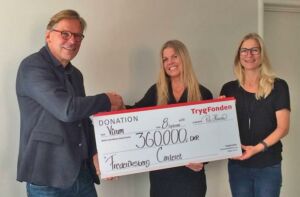News
More help for young gaming addicts
This article is more than 10 years old.
New initiative starting up in November

The initiative has been sponsored by TrygFonden (photo: Frederiksberg Centeret)
For most youngsters, computer games are a part of their daily lives at home or school. But for some, computer gaming has developed into an addiction that has consumed their lives.
The treatment centre Frederiksberg Centeret has teamed up with the foundation TrygFonden to help this youth group overcome a problem that can negatively impact on them personally and socially.
“We’ve developed a solution for the kids by garnering experience from Sweden, where they have worked with this issue for years now,” said Trine Majewicz, a therapist from Frederiksberg Centeret.
“We focus in our treatment on helping the youngsters to create solutions themselves, which can then be followed up in co-operation with their families.”
READ MORE: Danish boys spending weekends computer gaming
Different generations
Majewicz said that parents generally have a difficult time handling the young people’s excessive computer use as they come from a different generation and time. Being told off or banning computer gaming completely rarely helps, she underlined.
The initiative, to which TrygFonden has donated 360,000 kroner, is the first of its kind in Denmark and focuses on the changes needed for the youths to change their behaviour.
The youths meet in groups once a week for four weeks, typically for two-three hours at a time. Parents take part if the youths are under the age of 18. The offer is free and scheduled to start in November 2015.










































